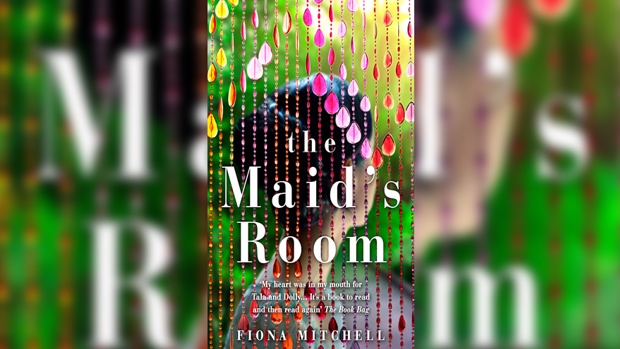Stephanie Jones Book Review - The Maid's Room
- Publish Date
- Thursday, 23 November 2017, 9:23AM

- Author
- By Stephanie Jones
The Maid’s Room is a confident and highly readable debut novel about a type of woman largely overlooked in modern literature: the immigrant factotum who is expected by her wealthy employer (term used loosely) to fulfill every common household role, from cleaner to cook to parent, while exhibiting unwavering servility and obedience.
If Fiona Mitchell’s debut novel cuts indelicately to the racist, classist heart of the matter, it’s because she’s come by her story honestly. The author lived for a couple of years in Singapore, where a real estate agent showed her a “windowless 12ft by 5ft bomb shelter” inside an apartment and matter-of-factly explained, “Your maid will sleep in here.”
The country’s foreign domestic workers earn the equivalent of around £300 a month for workdays stretching to 14 hours. There is no statutory minimum wage, and though a weekly day of rest is legally mandated, the majority of workers don’t get it.
More than anything, The Maid’s Room concerns women’s dreams, pain and privations. The reader’s stand-in and a pseudo Greek chorus is Jules, a London midwife whose repeated IVF failures have driven her away from her profession. She has joined her husband David in Singapore, where he has been seconded to support financial traders.
It is Jules’s introduction to a domestic economy built on the backs of women working in other people’s homes, some 230,000 just in Singapore, from countries including the Philippines, India and Indonesia. As a condition of their employment their passports are locked away. Often the maids are raising other people’s children while their own grow up without them, supported by the money they send home.
One such figure is Dolly, who works for Amber, an American, and a “slightly crumpled Norwegian” named Tor. A woman entirely without agency, Dolly is concealing a pregnancy that can only be regarded as the result of a consensual affair if you ignore the power imbalance between her and the father, another affluent expatriate. She has nurtured her employers’ five-year-old son, Sammy, since his birth, and passes on his designer hand-me-downs to her daughter Mallie, who was born 10 weeks before Dolly left the Philippines for a luxury condo, where she sleeps in a tiny bedroom and washes in cold water from a broken showerhead.
Mitchell cannot have known that a prominent theme in her book – the truth will out – would find real-life parallels at the time of its publication. Like the women taking to mainstream and social media to discuss sexual harassment and abuse by powerful men in business, entertainment and politics, Dolly’s older sister Tala starts a whistleblowing website called Maidhacker to anonymously call out bad employment practices which exploit maids. She thinks of a friend, killed when she fell from a high-rise condo after being ordered onto a ledge to clean the windows.
The Maid’s Room provokes pity, but not for the workers, who are able, intelligent and clear-sighted women bargaining their own lives away because of the kind of dream Dolly has for her daughters – that “one of them is going to make her own rules . . . live out her own possibilities.” All women here are somehow trapped, whether by poverty or ignorance: the expatriates’ book club, oblivious to the parallels, is reading The Help.
Who knows how many women, past and present, Tala is speaking for? “In the Lion City, you can walk just about anywhere and know that you’re safe. Danger isn’t in the darkness here . . . It’s behind the shut-up doors of those pristine condos.”
To get in the draw to win one of five copies of The Maid's Room click here.
Every week Stephanie reviews the Book of the Week.
As the Coast book reviewer, Stephanie Jones shares her thoughts each week on the latest releases.
Stephanie has a BA (Hons) in history and English literature, and a background in journalism, magazine publishing, public relations and corporate and consumer communications.
Stephanie is a contributor to the New Zealand Book Council’s ‘Talking Books’ podcast series (listen here), and a member of the 2016 Ngaio Marsh Award judging panel. She can be found on Twitter @ParsingThePage.

Take your Radio, Podcasts and Music with you

